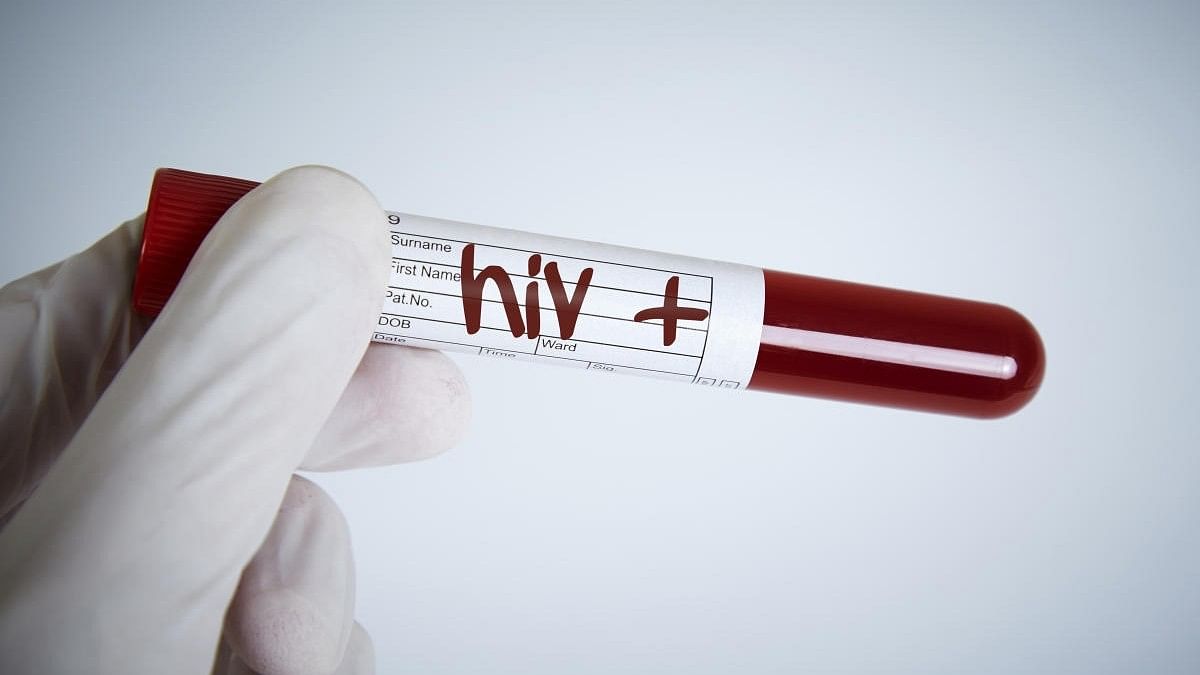
Representative image of blood sample with HIV+.
Credit: iStock Photo
Srinagar: Jammu, Kashmir and Ladakh have 6306 HIV AIDS-positive patients while 1452 have died since 1998 and 3583 are on antiretroviral therapy (ART), official figures reveal.
The majority of the cases have been reported from Jammu region with Government Medical College (GMC), Jammu reporting 5154 cases in 25 years. Among them, 1274 have died, 470 have left follow-up, and 2,782 are living on ART.
Similarly, at SKIMS hospital in Srinagar, the number of patients registered in HIV care till October 2023 is 776, with 152 deaths, 35 leaving follow-up, and 473 living on ART.
Doctors at the SKIMS said that though there was a less prevalence of HIV positive cases in Kashmir but even minimal cases need to be taken seriously. They said that it was a ticking time bomb, which could explode anytime.
“Drug abuse among the youngsters should be taken seriously and steps need to be taken to stop this menace. If, God forbid, HIV positive cases increase, they will spread like a fire. So, it is very important to stop drug abuse in Kashmir,” doctors said and added that due to social stigma, many people aren’t coming forward for HIV tests.
As per doctors’ drug addicts are at a higher risk of contracting HIV/AIDS and if they are sexually active, they transmit this to their partners as well.
According to Dr Arshad Hussain, a professor at GMC, Srinagar due to the primordial protective mechanisms within the culture Kashmir had eluded clear of HIV epidemic till now.
“But I am no more optimistic as IV opioid use is already flaring Hepatitis C and Hepatitis B epidemics and HIV is not far away. We need to act and act now,” he said.
However, still the prevalence of HIV in Jammu and Kashmir is lowest in the country with a prevalence of 0.06% as per India HIV Estimates 2021 which is very much below the National prevalence of 0.21%.
Experts credit religion and religious figures for keeping a check on the disease. “Our socio- religious bindings prevent a person from going for a promiscuous relationship. It has kept the cases on the lower side here,” said Dr Saleem Khan, consultant with the Community Medicine Department.
Acquired Immunodeficiency Syndrome (AIDS) is a chronic, potentially life-threatening condition caused by the human immunodeficiency virus (HIV). By damaging the immune system, HIV interferes with the body’s ability to fight infection and disease.